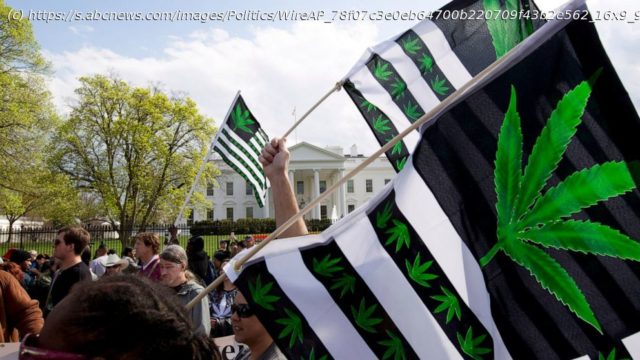Array
By pardoning Americans with federal convictions for marijuana possession, President Joe Biden said he aimed to partially redress decades of anti-drug laws that disproportionately harmed Black and Latino communities.
While Biden’s executive action will benefit thousands of people by making it easier for them to find housing, get a job or apply to college, it does nothing to help the hundreds of thousands of mostly Black and Hispanic Americans still burdened by state convictions for marijuana-related offenses, not to mention the millions more with other drug offenses on their records.
Advocates for overhauling the nation’s drug laws are hopeful that Biden’s pardons lead state lawmakers to pardon and expunge minor drug offenses from people’s records. After all, they say, dozens of states have already decriminalized cannabis and legalized it for a multibillion-dollar recreational and medicinal use industry that is predominantly white-owned.
“We know that this is really the tip of the iceberg when it comes to people who are suffering the effects of (past) marijuana prohibition,” said Maritza Perez, director of federal affairs at the Drug Policy Alliance, a nonprofit organization pushing for decriminalization and safe drug use policies.
The decades-long “war on drugs,” a sweeping federal legislative agenda that Biden championed as a U.S. senator and that was mirrored by state lawmakers, brought about mass-criminalization and an explosion of the prison population. An estimated tens of millions of people have had a marijuana-related arrest on their record since 1965, the vast majority of them stemming from enforcement by local police and state prosecutors.
But as many law enforcement officials like to point out, the majority of people who serve long sentences for marijuana-related offenses were convicted of more serious charges than possession, such as a weapons count or the intent to sell or traffic the drug on a larger scale. Such factors are typically how a case moves into federal territory versus state prosecution.
Still, reform advocates counter that many of them aren’t violent drug kingpins.
A 2021 Associated Press review of federal and state incarceration data showed that between 1975 and 2019, the U.S. prison population jumped from 240,593 to 1.43 million people. Of them, about 1 in 5 were incarcerated with a drug offense listed as their most serious crime.
The passage of stiffer penalties for crack cocaine, marijuana and other drugs in the 1990s helped to triple the Black and Hispanic incarceration rates by the year 2000. The white incarceration rate only doubled.
And despite state legalization or decriminalization of possession up to certain amounts, local law enforcement agencies continue to make more arrests for drug possession, including marijuana, than any other criminal offense, according to FBI crime data.






